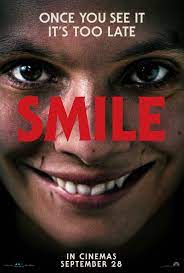Movies: The Menu
Warning for spoilers in this review.
Directed by Mark Mylod, The Menu is a perfectly cast dark comedy-thriller treat. Margot (Anya Tayor-Joy) is a down-to-earth girl who has been invited by Tyler (Nicholas Hoult), a food snob to the nth degree, to join him for a once-in-a-lifetime opportunity to dine at an exclusive restaurant that takes only 12 patrons per night at $1250 per plate.
The restaurant, Hawthorne, is located on an island where the restaurant grows and harvests all the ingredients for each exquisitely made dish. Joining Margot and Tyler on the journey are two regular customers, Richard and Anne Liebbrandt (Reed Birney and Judith Light), washed up actor George Diaz and his assistant, Felicity (John Leguizamo and Aimme Carrero), famous restaurant critic Lillian Bloom and her assistant, Ted (Janet McTeer and Paul Adelstein), and three absolutely insufferable finance bros, Soren, Bryce, and Dave (Arturo Castro, Rob Yang, and Mark St. Cyr). The 12th guest for the evening is the chef's own mother, Linda (Rebecca Koon).
Taking care of the guests is Elsa (Hong Chau), Chef's formidable right-hand woman.
Chef Julian Slowik (Ralph Fiennes), is a man from humble roots who now commands his restaurant with an iron fist and a quiet voice.
So, I took the time to name all the main characters and the actors who play them because the acting in The Menu is one of the film's strongest features. Taylor-Joy is wonderful as a woman who doesn't really give a hoot about all this fancy food bullshit, but is happy to go along with it as long as it's all on Tyler's dime. Nicholas Hoult is perfection as a man we've probably all met and hated: the food snob. He is obsessed with Chef Julian, but also immediately breaks Chef's rule that no pictures of the food should be taken. He is worshipful, yet entitled.
I also especially enjoyed Janet McTeer as the powerful restaurant critic who finds even the smallest imperfections in Hawthorne's haute cuisine. And Ralph Fiennes is quietly terrifying as a man who has turned fine dining into, well, a death cult.
If you've seen the previews for The Menu, you know that something goes horribly wrong during this evening of luxury dining. As each course is served, the theme of the courses becomes increasingly hostile towards the patrons of the restaurant, starting with a bread course in which there is no bread, only savory dippings for the breads. Chef explains that since bread was historically a food of the lower classes and all the patrons of the restaurant are not in the lower class, they will go without bread. While the finance bros are a little pissed off at this, the food snobs in the room all marvel at Chef's creativity and "food as social commentary".
But things only get worse from there on out. It becomes clear that these guests were chosen to be part of a "final menu" that, well, is going to be pretty damn final if you know what I mean. However, there is one problem: Margot. Originally, Tyler invited his girlfriend to join him at Hawthorne, but the GF dumped him. Margot is an escort whom Tyler hired for this special evening. Right away, both Elsa and Chef know that Margot "doesn't belong". Over the course of the evening, Margot tries to find ways to escape. Chef confronts her and asks if she is with "them" (the customers) or "us" (the cooks). What he means is Margot is a giver or a taker? A server or the served? Margot's answer won't make a difference in the end, however, since Chef is adamant that no one will leave the island alive. Once Margot realizes Chef's plans, she has to race against time to find a way out of this terrible situation.
The Menu is another "eat the rich" film--a genre that has been very popular over the past few years (I wonder why?). Joining the ranks of Ready or Not, Us, Parasite, Knives Out, and many others, The Menu pits a working class protagonist against rich and powerful people. However, this film turns some of the tropes of class warfare on its head because in this movie, the "working class" (i.e. Chef and his assistants) are actually more powerful and deranged than the rich and powerful they are serving. Margot is literally the only person in the room who doesn't give a fuck about Hawthorne and its fancy, bullshit food. Therefore, she may be the only one who doesn't deserve the fate Chef has planned for everyone else.
Although The Menu has a few plot twists I found annoying, the film is overall really fun, funny, and tense. The script is filled with humorous bon mots that I couldn't hear half the time since the sound in the theatre sucked...so I'll definitely be watching the movie again with subtitles on!
As a girl who far prefers a cheeseburger to a breadless bread course, I really savored The Menu and plan to partake of it again.
Grade: B+
.jpeg)


